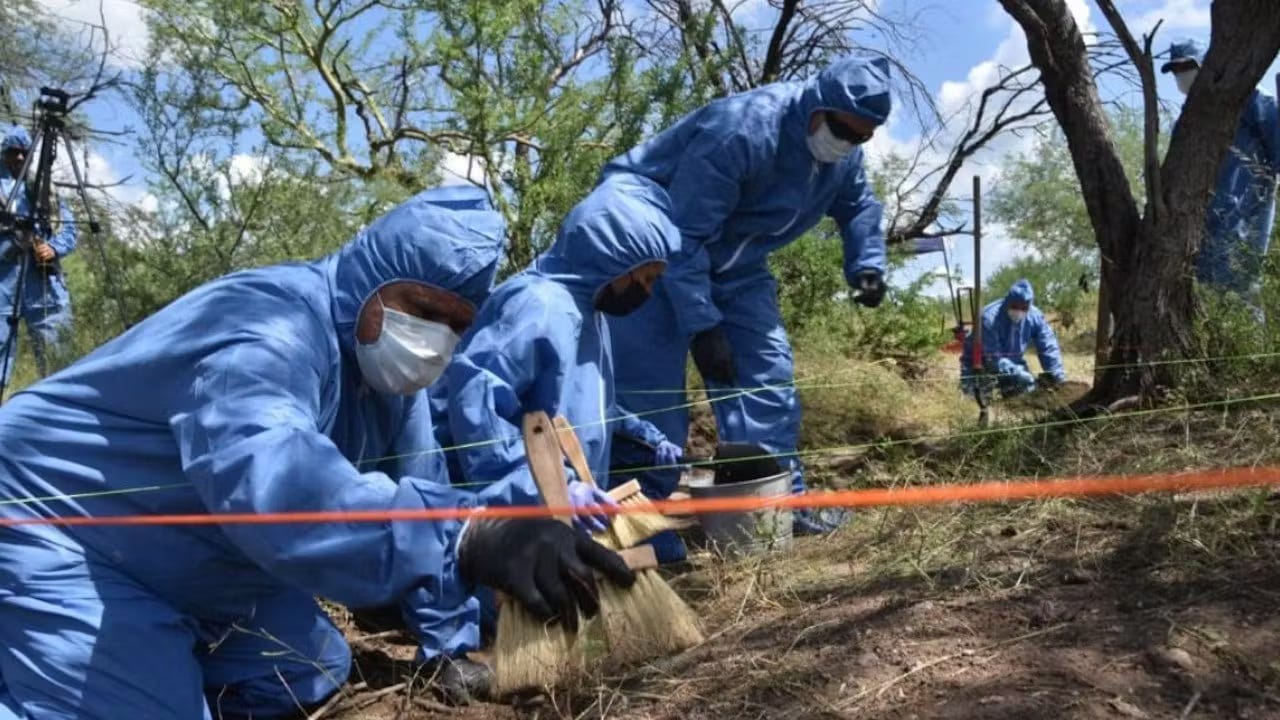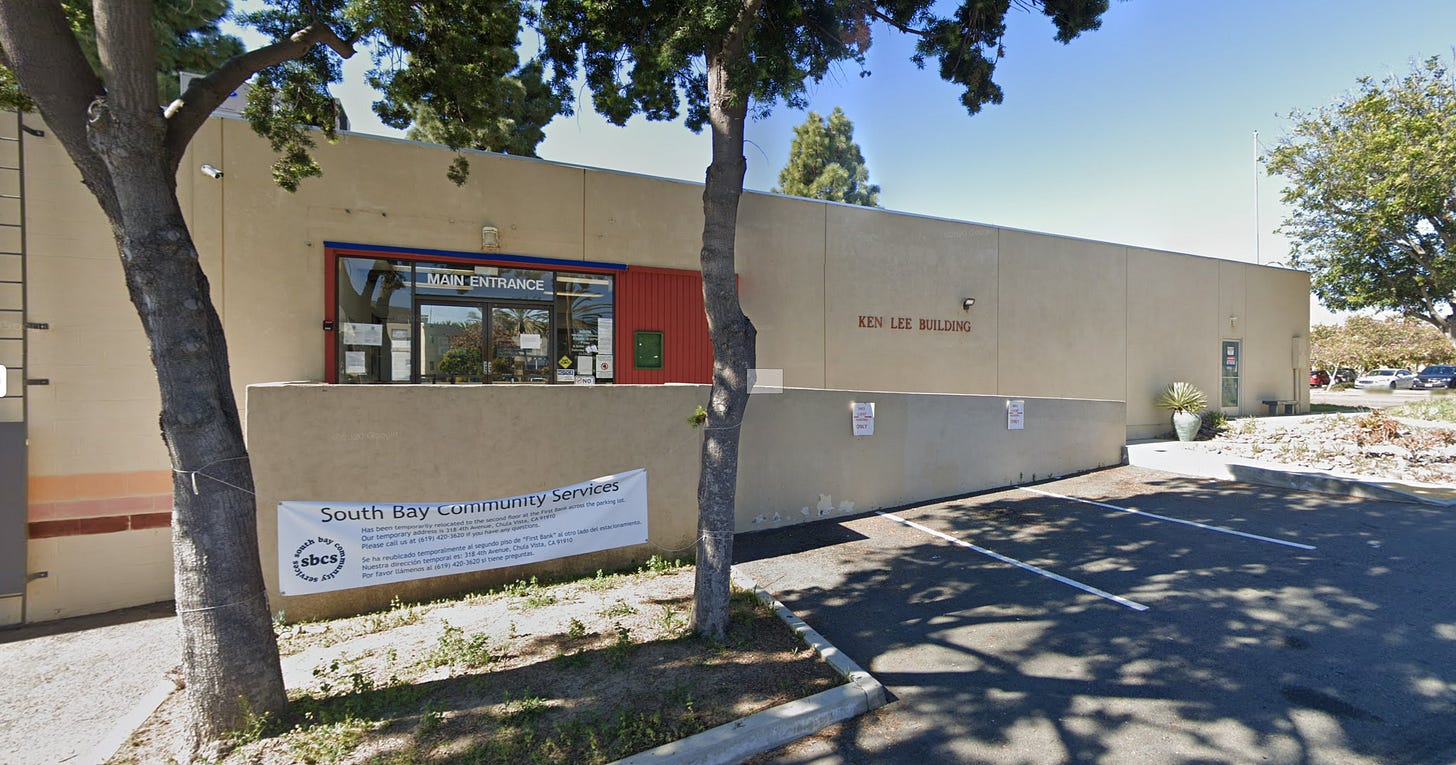Mexico Faces Scrutiny Over Purging "Disappeared" List Amid Ongoing Crisis
The Border Center for Journalists and Bloggers (BCJB) shares a summary of the main news on the border for February 20, 2024.
Mexico’s missing vanish again

Los Angeles Times’s Patrick J. McDonnell and Cecilia Sánchez Vidal.- In Mexico, families are confronting a harrowing reality as their missing loved ones are being inexplicably removed from the government's official list of the "disappeared," despite no evidence of their reappearance. The list, which had surpassed 100,000 names, has been subject to a controversial purge by the government, claiming to correct false entries and duplicates. However, families like Susana García Colorado's, who was falsely informed her brother had been found, face renewed anguish discovering their relatives remain missing. Critics accuse President Andrés Manuel López Obrador of attempting to minimize the crisis, particularly in the lead-up to national elections, by understating the extent of Mexico's disappeared. The administration's efforts to revise the list and classify a significant portion as "not found" have sparked outrage among advocates and victims' families, who see it as a betrayal and a denial of the widespread violence and impunity that fuel the crisis.
San Diego Migrant Welcome Center Faces Closure Due to Funding Shortfall
San Diego Union-Tribune’s Alexandra Mendoza.- A crucial migrant welcome center in San Diego, offering essential services such as meals, charging ports, and WiFi, is on the brink of closure this week, as county funds allocated for its operation have been exhausted earlier than anticipated. Managed by the nonprofit SBCS (formerly South Bay Community Services), the center has been a temporary haven for tens of thousands of migrants, many seeking asylum, since its inception. Despite receiving $6 million from San Diego County to aid migrants arriving at the U.S.-Mexico border, the significant rise in migrant numbers has stretched resources thin, leading to the early depletion of funds intended to last until the end of next month. The center's potential closure has sparked concerns among migrant support groups about the possible increase in migrants ending up on the streets or at transit centers. The county's interim chief administration officer is expected to present a long-term strategy next month. At the same time, local supervisors call for federal intervention to address the increasing migrant arrivals and the broader humanitarian crisis.
Arizona Proposes Strict Immigration Law, Aims to Expand E-Verify for Hiring and Licensing
Arizona Republic’s Ray Stern.- Arizona House Speaker Ben Toma and fellow GOP lawmakers have proposed a new legislative measure, House Concurrent Resolution 2060, to impose stringent immigration law in the state. This legislation seeks to expand the use of the federal E-Verify system, mandating its application not only for new hires by employers but also for independent contractors and subcontractors. Furthermore, it extends the requirement to state, county, and municipal governments to verify the immigration status of individuals applying for licenses. The proposal underscores the Republicans' response to the current border crisis and their critique of the federal government's handling of immigration issues.
Critics, including immigration advocates and Democratic lawmakers, argue that such a measure could lead to economic and social repercussions, drawing parallels to the backlash experienced after the enactment of Senate Bill 1070 in 2010. They warn of potential boycotts and the harmful effects on undocumented individuals who have been part of Arizona's community for years. On the other hand, proponents argue the legislation is a necessary step to deter undocumented immigration and reduce state expenditure on benefits for undocumented residents, citing figures from the Federation for American Immigration Reform.
The resolution has passed the House Appropriations Committee and awaits a total House vote before proceeding to the state Senate. If approved by a simple majority in the legislature, the measure could be placed on the November ballot for Arizona voters to decide, bypassing the need for Governor Katie Hobbs' signature. This move reflects the ongoing national debate over immigration policy and the role of state legislation in addressing border security and immigration enforcement.
In the immigration conflict zone on the Texas-Mexico border, some play a round of golf
The New York Times’s J. David Goodman.- In the tense border area of Eagle Pass, Texas, the immigration conflict and state security measures contrast with the serenity of the municipal golf course. While the National Guard deploys vehicles and barbed wire to intercept migrants, golfers enjoy their sport without restrictions. The field, next to the river and overlooking containers used as barriers, remains open to all, symbolizing an oasis of normality in an environment marked by crisis. The military presence and new obstacles have not deterred the players, who, between shots and game strategies, observe the border reality. This scenario highlights the contrasts of life in this region, where daily activities such as golf take place alongside security operations and political debates about immigration.





